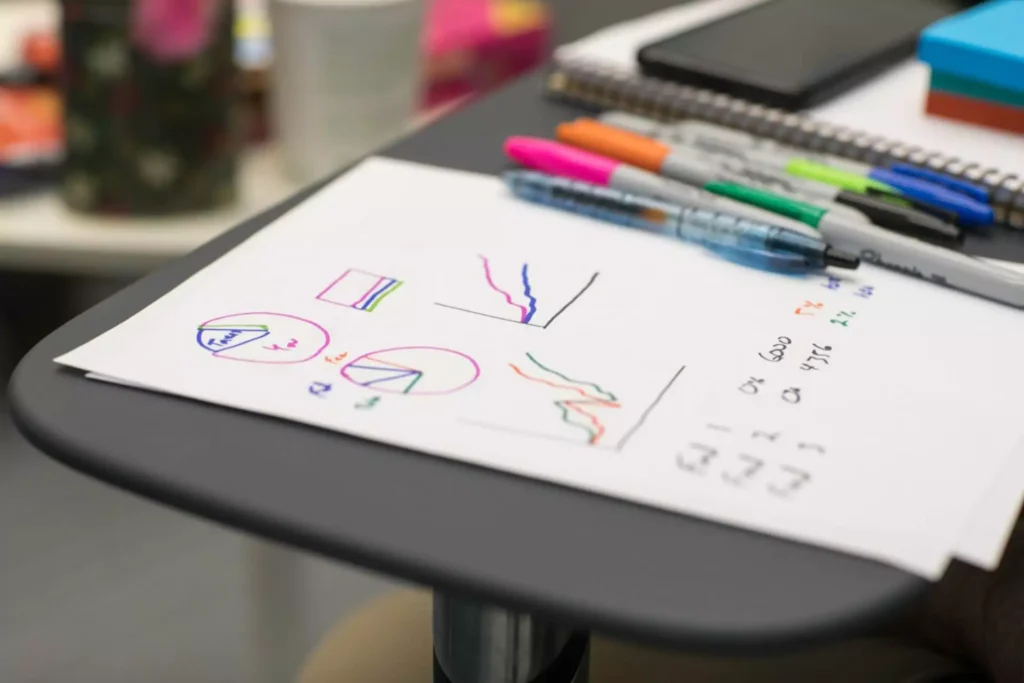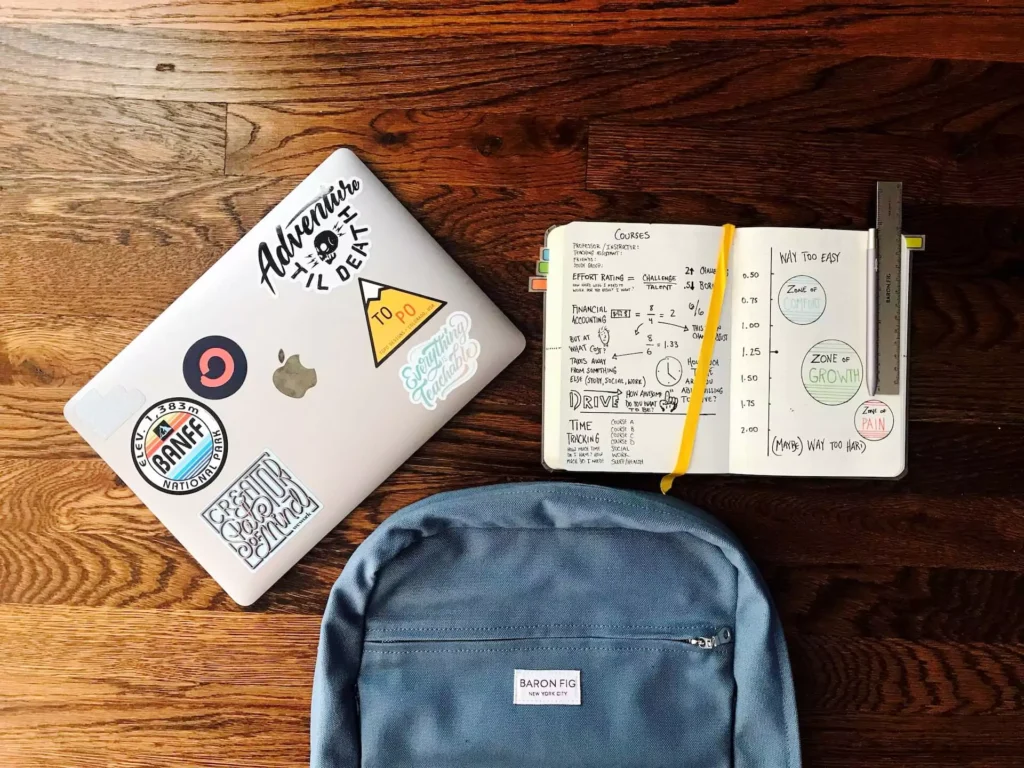The best way to get the desired grade is to ensure you fully understand the subject. Good test-taking skills, on the other hand, can help you get a better score than average. Mastering these skills can also help you feel less stressed and less worried about tests.
This blog has two sets of tips for taking tests: seven steps you can do to prepare for your next exam and seven actions you should do once the test begins. We’ve also included four ways to help with test nervousness.
We hope tips will help you pass your next test, whether big or small.
The Seven Best Test-Prep Techniques
Here are the seven best steps you can do to prepare for your next test.
Table of Contents
1. Develop Good Study Techniques

It takes time to understand and remember knowledge for a test, so starting good study habits a long time before the test is important.
Make sure to do your job carefully and turn it in on time. Every day, go over your notes. Write your tips to help you study. Use any practice tests your teacher gives you, or make your own.
When you do these simple steps regularly, they will help you make sure you know your stuff on test day.
2. Don’t try to “cram.”
Spending hours the night before the test learning what you need to know is a good idea.
Cramming for a test isn’t a good idea at all. Not only is it less likely that you will remember the information you need, but it also makes you more stressed, harder to sleep, and less ready overall.
So don’t give in to the urge to stay up late to review your notes. Making good study habits and getting a good night’s sleep are much more likely to help your grade than cramming at the last minute.
3. Get everything you need the night before

Gather everything you need for the test and have it ready before bed early so you can get a good night’s sleep.
If you have everything ready the night before the test, you’ll feel more sure and less stressed the following day. It will also give you a few extra minutes to sleep and eat a good breakfast.
4. Get plenty of sleep
And since we’re talking about sleep, one of the best things you can do to do well on your test is to get enough sleep the night before.
Why should you put your sleep first? You can think more efficiently if you get a good night’s sleep before the test. It will also make dealing with the stress and worry of taking tests easier. Good sleep habits have also been shown to help people remember things better, do better in school and be less likely to have sadness or other mental health problems.
5. Have a good breakfast

Like sleep, food is important to caring for yourself and getting ready for a test. After all, it’s hard to think straight when your stomach is making noises.
Plan to eat healthy food on the morning of your test, even if it’s hard when you’re nervous or in a hurry.
A mix of complex carbs and healthy protein will keep you full without making you feel tired. Depending on your wants and tastes, whole wheat cereal, eggs, oatmeal, berries, and nuts could all be good options. Sugary foods can give you a quick energy boost that wears off quickly, leaving you tired.
Be sure to drink plenty of water, and bring a bottle to the test if possible.
6. Get there early
Getting early to a test site can help reduce worry. And it enables you to feel good about yourself before the test starts.
As soon as possible, pick your spot. Please set up your supplies so they are easy to find when needed. As much as possible, make sure your body is relaxed.
Getting settled in early gives you time to get organized, calm down, and prepare your mind for the test. Even in high school, making the most of your time in the test room, even if it’s just a few minutes, can help you feel more comfortable, settled, and focused before the test starts.
7. Come up with good habits
Remember how important confidence and a good attitude are when studying for a test.
Positive routines can help you deal with negative thoughts, test anxiety, and a lack of focus, making it hard to do well on a test. Plan extra time for a short walk or listen to your best music. Do some easy exercises for your breathing. Imagine that you will do well on the test.
Your habits don’t have to be the same as anyone else’s. The most important thing is to find a way to relax to give you more confidence, a better mood, and better focus when the test starts.
Harvard Summer School is an excellent place for high school students to learn about college programs.
Seven Best Test-Taking Tips for Success

You slept well, ate a healthy breakfast, got to the test site early, and did your good test-day routine. You’re all set to begin the test!
Different kinds of tests need different ways to do well on them. For example, you might want to take a math test in a different way than you would take a writing test. And on some online tests, like the SAT, you must do things a certain way.
But there are some general ways to take tests that will help you get the grade you want on most, if not all, of them.
1. Pay attention to the directions.
Once you see the test, you might forget everything else so that you can start immediately.
If you do that, you might miss important details about the test itself.
The teacher or monitor may give you information about how the test is set up, how long you have to finish it, how it will be graded, or other things that could change how you do it. They may also point out steps you’re likely to miss or give you other tips that will help you do better.
So before you start, pay close attention to what they say.
2. Go through the whole test.
If you have time, quickly review the whole test before starting, and this will help you figure out how the test is set up and see where you might need more or less time.
Once you’ve read the test, you can plan how you want to tackle each part to ensure you can finish the whole test in the given time.
3. Have a “Brain Dump”
For some types of tests, it is important to remember facts, data, or formulas. Before you start one of these tests, it can be helpful to write down everything you need to know on scrap paper.
Putting that important information on paper can help you relax and focus on the test questions instead of worrying about whether you will remember the facts. Now you have something like a “cheat sheet” to use during the test!
4. Start by answering the questions you already know the answers to.

When you can, go through the test once to answer the “easy” or “known” questions immediately, if you can’t answer a question quickly, skip it on this first pass.
Take your time with this first pass, but be aware of time. You should give yourself enough time to go back and answer the questions you skipped.
It’s important to remember that this method won’t work on all tests. Most computer-based standardized tests don’t let you skip questions and return to them later. You must do each problem in the order it appears on these tests and can’t skip around.
5. Give answers to the questions you skipped
You have to go back and answer the questions you skipped the first time around.
In the best case, some of these questions might be easier than you thought. At this point in the test, your mind is warmed up and fully involved and focused. And answering the easy questions helped you remember the information you needed for the hard ones.
You may still have trouble with some questions, which is fine. If you quickly answer the first set of questions, you can take your time on the harder ones.
6. Make sure that the test is done.
Check again to ensure you got all the questions after you think you’ve answered them. Check the back of the paper or other places where you might have missed or not seen extra questions when reading the paper.
People often wonder if they should skip questions they can’t answer. You can’t answer that question in a general way because it depends on the test and the teacher’s rules. It could also depend on how much each question is worth and whether or not your teacher offers partial credit.
But if you don’t get in trouble for a wrong answer or for leaving a question blank, it’s usually better to write something than nothing.
7. Look over your work
Lastly, if you still have time, review the test again and check your answers.
Read over your answers to short answers and essay questions to look for mistakes, things you might have missed, or better ways to say what you wrote. Ensure you answered all the parts of the question if there were more than one. Check your math results twice if you made a small mistake that changed the final result. You shouldn’t overthink your answers, but double-checking and verifying can help you find and fix clear errors.
How to Deal with Test-Taking Nerves
Almost every student gets worried before a test at some point, especially if the test is important. If you’re lucky, the nerves you feel before a test will be mild and can be eased with these tips.
A few nerves can be helpful, even if they are uncomfortable. The rush of adrenaline that causes nerves can help you stay focused and energetic.
But test-taking worry, a form of performance anxiety, can be crippling and overwhelming for some students. Having this much worry can be very hard to deal with.
But there are a few things you can do before and during a test to deal with more severe worry and anxiety:
1. Take a break to think or stretch while sitting.

Take a minute or two before or during a test to focus on breathing, have a quick positive thought, relax tight muscles, or stretch your limbs. The relaxing effect can be helpful and is worth trying for a few minutes.
2. Switch out bad thoughts with good ones
Learn to recognize when your brain is stuck in a loop of negative thoughts and practice changing those thoughts into positive ones. Say “I’m going to succeed” instead of “I’m going to fail” when you catch yourself saying, “I’m going to fail.” With practice, this can be a powerful way to stop negative thoughts from making you feel bad about yourself.
3. Mistakes are a chance to learn
It’s easy to worry too much about getting a bad grade. Instead, tell yourself that it’s all right to mess up. If you get a question wrong on a test, it’s a chance to figure out where you need to learn more or spend more time learning.
4. Get help from a pro
Test nervousness is real and should not be laughed off. If these tips don’t help you feel better, it’s time to talk to a professional. Your guidance counselor or a therapist can give you long-term ways to deal with your worry about tests. Talk to your parents or guardians about getting help from someone else.
Even if you follow these tips, you can’t be sure you’ll get an A on your next big test, and that can only be done by working hard and studying a lot.
But these test-taking tips can help you feel more sure of yourself and do better on test day. Tests are a part of being a student, but if you study and have faith, you can do well.
For more tips check out this article alsoo: 7 BEST TIPS FOR EXAM TESTS PLAN THE DAY OF A TEST
